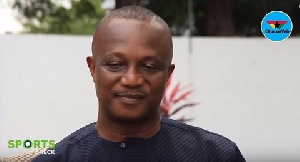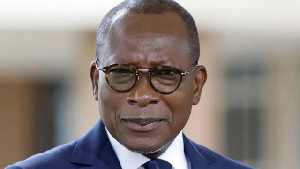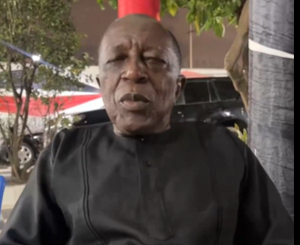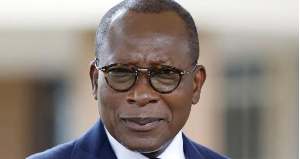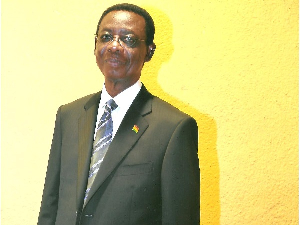Of all of Africa’s giants preparing for the Africa Cup of Nations, Ghana are one of the harder teams to assess.
Their track record at the continental showpiece is excellent in recent years, as while the Black Stars haven’t won the title since 1982, they’ve consistently reached the last four over the last six campaigns.
In fact, you hThis time around, however, Ghana are outsiders to reach the semis, both based on their recent performances and the squad assembled by Kwesi Appiah.
After Avram Grant’s departure following the 2017 Nations Cup, Appiah returned to the helm for a second stint, but has taken his time to impose an identity upon Ghana.ave to stretch back to 2006 to find an Afcon in which the West African heavyweights failed to make the semi-finals.
His tenure began in style, with a 5-0 demolition of Ethiopia during the Nations Cup qualifiers, but since then they’ve only defeated seven teams.
In the last two years, only Congo-Brazzaville, Saudi Arabia, Japan, Asante Kotoko (in a low-profile friendly), Ethiopia, Kenya and Mauritania have been defeated by the Black Stars.
They’ve been held by Congo, Uganda, Egypt and Iceland, and been beaten by Kenya, the United States and Mexico.
It’s a mixed return, and while they missed out on the World Cup—taking just six points from their final possible 12—Nations Cup qualification was secured, albeit with a helping hand from Sierra Leone’s suspension and subsequent disqualification from the campaign.
Ghana have won their last four matches, but team selection has lacked consistency and key questions around the team remain unanswered.
Here's a reminder of the 29-man provisional @ghanafaofficial squad for the Nations Cup.
— Ed Dove (@EddyDove) June 3, 2019
The team begin camping in Abu Dhabi today (June 1), with many of the players having already arrived.
Will preparation for Ghana be more important than for any of the other heavyweights? pic.twitter.com/uNKDTbSOAh
More than 75 players have been called up by Appiah since his return, with 57 different players seeing gametime under the returning coach.
Despite this, his 29-man provisional Afcon squad contained seven players who are either uncapped or hadn’t been used before by him.
More than 75 players have been called up by Appiah since his return
— Ed Dove (@EddyDove) June 3, 2019
58 different players have played under him during second tenure.
Ghana's 29-man provisional Afcon squad contains 7 players either uncapped or hadn’t been used before by KA. pic.twitter.com/el34Gpv6GJ
Of these, perhaps Abdul Rahman Baba—returning to fitness and form after a two-year injury nightmare—can be explained, but the inclusion of the others raises questions about Appiah’s familiarity with or confidence in his existing options.
Conversely, several players who have been consistent figures over the last two years have been discarded.
Injuries account for the absences of Daniel Amartey and Nicholas Opoku, although Harrison Afful—officially excluded due to a broken jaw—could feasibly have made a comeback in time.
However, it’s unclear why Appiah has opted to jettison Raphael Dwamena, Isaac Sackey and Nana Ampomah, all of whom have been regulars over the last 24 months, or why he’s not opted to include Frank Acheampong despite his form in China.
Acheampong, one of Ghana’s best players at the last Afcon, hasn’t featured for the national side since the draw with Iceland, but played in 50% of Appiah’s first 10 matches back and has eight goals/assists in his last 12 league games for Tianjin TEDA.
It’s a mystery why such an able and—critically—versatile talent has been left at home.
Richmond Boakye, another player who could have been a key figure in Appiah’s rebuild, has also missed out due to fitness concerns, despite scoring 13 in 15 for Red Star Belgrade this term.
It’s a bitter disappointment that the striker has made just one start since scoring two in the World Cup qualifying victory over Congo in September 2017.
Injured Jeffrey Schlupp and Alfred Duncan all into a similar category; they’ve not been regulars under Appiah, but their quality and experience could have made them valuable additions to the Egypt-bound squad.
While there are a handful of consistent starters and key men for Ghana under Appiah—notably Thomas Partey, Lumor Agbenyenu and Richard Ofori—in the squad, there’s too much uncertainty—and/or unfamiliarity—about too many key areas.
Amidst the recent presidential drama surrounding Asamoah Gyan’s participation and the ongoing tensions between him and the Ayew brothers, it’s been easy to forget that all three have been peripheral figures during Appiah’s second coming.
Without even considering their poor seasons at club level, the trio have each only started eight games between them since the Ethiopia victory, with Gyan not starting a match in 20 months.
Their supporting cast haven’t enjoyed much more gametime either, with the possible exceptions of Christian Atsu, Kasim Nuhu and maybe even John Boye.
Thomas Agyepong has also been included, despite playing just over half an hour in the last six months for Hibernian, ahead of players such as Albert Adomah, Bernard Mensah, Ema Boateng, Alhassan Wakaso, Kwesi Appiah or Godfred Donsah.
Ebenezer Ofori has returned to the squad for the provisional list of 29, having previously looked like he’d become a key man under Appiah following the coach’s re-appointment. However, in recent matches, the manager has restored Wakaso Mubarak in the heart of the park, while Afriyie Acquah and Kwadwo Asamoah have each had sporadic run-outs.
The latter’s return to the national team is yet to have the anticipated impact, with the serial Serie A winner only starting one match—the Kenya victory—since his return last year.
While there’s optimism in the form of Caleb Ekuban’s emergence—the striker has two goals in two international appearances to date, Ghana cannot place too much stock on a player who’s yet to start a match for the Black Stars.
However, as has been the case for Ghana in recent tournaments, it may not be the squad’s most high-profile players who actually emerge as the key men when the chips are truly down.
Appiah has no shortage of talent to work with, and he’s backed himself with plenty of experience and ample players familiar with the latter stages of the Nations Cup—notwithstanding the baggage they bring.
However, is there enough dynamism there, enough consistency of thought and familiarity of routine, to ensure that Ghana maintain their proud record of consecutive semi-final appearances?
Appiah had an opportunity, upon his return, to build a team based on talent, unity and cohesion, rather than rely on past glories and high-profiles.
Unfortunately—and acknowledging injuries—his new-look Black Stars are still to truly take shape.

